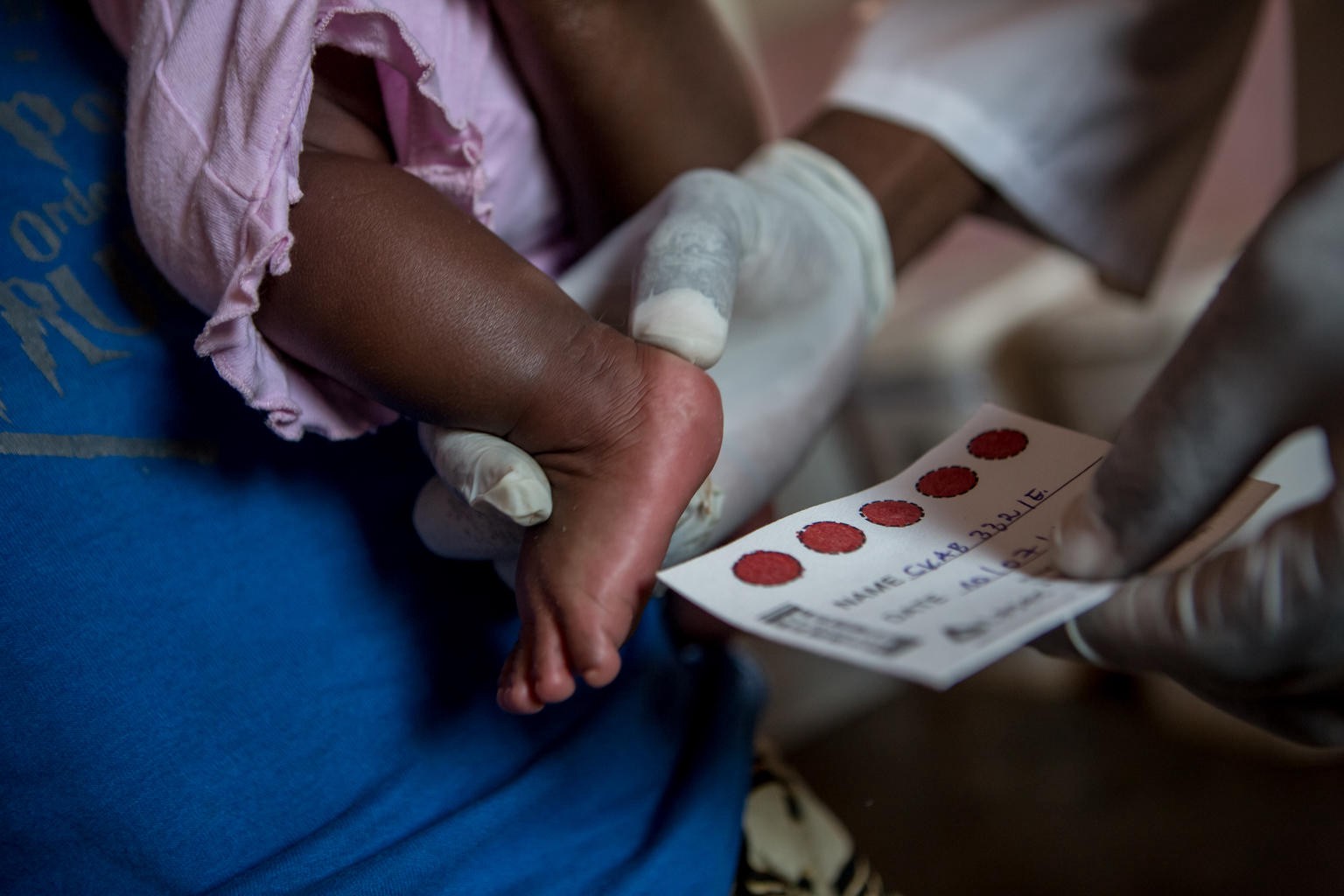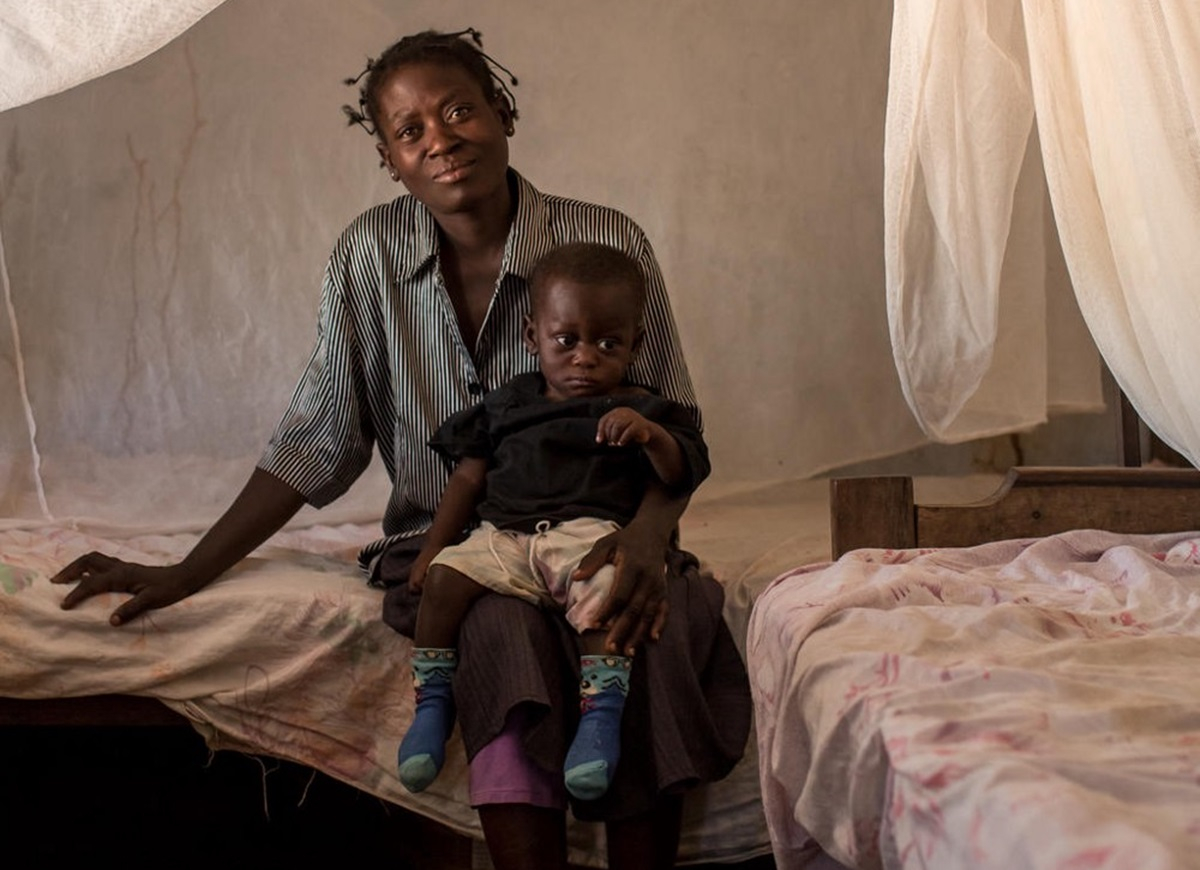Waiting for a diagnosis
2017-12-01
©UNICEF/UN0147630/Schermucker
World Aids Day — 1 December 2017
Babies can wait months for HIV results, but new technology can give a result the same day, speeding up treatment, and saving lives.
HIV testing and treatment is at an all-time high for pregnant women in the Democratic Republic of the Congo (DRC) with 68 per cent on treatment. However, only a quarter of children living with HIV are on treatment, and just 17 per cent of babies are tested before they are two months old. DRC is home to an estimated 42,000 children living with HIV, many of whom do not know their status.
Celeste lives 75 kilometres from Mfuta clinic. She didn’t know her HIV status as she didn’t visit the clinic during her pregnancy, it was just too far away. When Emmanuel became ill nine months after he was born, she aved the walk to the clinic only to find that the test kits had run out.

©UNICEF/UN0147628/Schermucker
(Left) Modest Kabango is head nurse at the Mfuta clinic, a remote clinic serving close to 80,000 people where all lab work has to be sent a 600 kilometre round trip to Lubumbashi, the closest city.
“It can take up to a year for a mother to receive her child’s test results … We are not allowed to administer ARV’s without a positive test result,” says Dr Lucie Nkonde, head of Kasanga Health Zone.

©UNICEF/UN0147627/Schermucker
Babies can wait days, weeks and sometimes months for a diagnosis because the rapid diagnostic tests used for adults don’t work for them. Instead, samples have to be sent to a laboratory that processes tests from more than eight provinces in the country. A laboratory specialist prepares a HIV test in Lubumbashi.

©UNICEF/UN0147632/Schermucker
Celeste persevered with therapeutic food to treat his malnutrition, but Emmanuel became sicker. During a community visit she was encouraged to test Emmanuel for HIV. She walked to the clinic again, crossing through waist-high rivers.
“But I didn’t give up …. It was my heart that helped me get there,” she said.

©UNICEF/UN0147631/Schermucker
His sample was sent as a “critical case”. It took five months to receive Emmanuel’s results. Celeste’s husband died in that time. At Mfuta clinic, it’s a struggle for head nurse Modest Kabango to provide appropriate care based on test results.
“We just have to try and keep the baby alive until the test results come back,” he says.

©UNICEF/UN0147629/Schermucker
When Emmanuel’s results returned HIV positive, treatment started immediately and slowly his health returned. Without treatment, half of babies born with HIV will die before their second birthday. At the Kaboko Health Centre in Kisenga Town, a blood specimen is collected from a baby for HIV testing.

©UNICEF/UN0147633/Schermucker
There are devastating consequences for these delays, most notably the unnecessary death and severe suffering of thousands of children. Jean Ngoy, 3, at the paediatric ward at the hospital in Katanga. Jean is suffering from severe acute malnutrition and is HIV positive.

©UNICEF/UN0136851/Schermucker
Instead of the time it took for Emmanuel’s results to be returned, new Point of care (POC) diagnostic machines can return test results on the same day and treatment can be started immediately. In DRC, this lets doctors like Dr. Nkonde make timely decisions and start treating HIV-infected babies with life-saving drugs. For every child, an end to AIDS.
This project is a joint effort of UNICEF, CHAI, and ASLM, and made possible thanks to Unitaid’s support.










